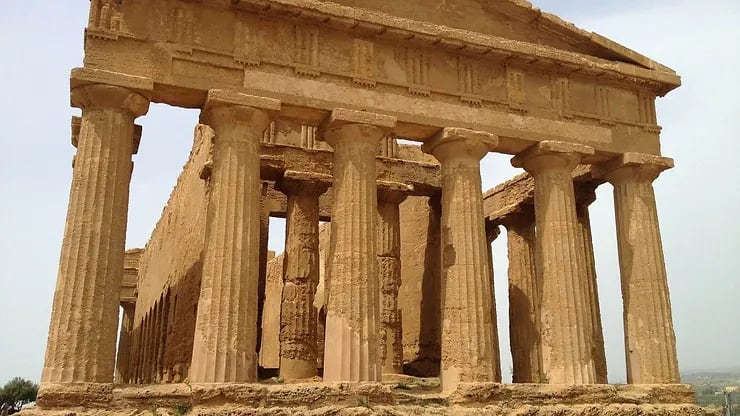
Historical background to Draco the Lawgiver
Over two and a half thousand years ago, Ancient Athens was a rough place to live. Its legal system was still oral in nature, known only to the ruling classes and applied and interpreted in a very arbitrary way. Because of this, the city and its people were often engaged in blood feuds and vendettas as a substitute for an adequate system of justice and retribution. In essence, criminal cases were seen as private matters, separate from the remit of the state and were resolved by the injured party or the family of the victim with whatever means were at their disposal. The more powerful the family, the more likely they were to prevail, regardless of whether their cause was just.
Eventually, it became clear to the ruling classes that this could not continue and so they decided to abandon the recondite system under which they had previously lived and move to a written code that could be broadcast to all Athenian society, thereby ensuring universal access to – and awareness of – the law. They turned to an aristocrat named Draco who was given the job of setting down a written constitution and law code around about the year 621 BC.
To ensure that the law code was available to the widest audience, it was written down on wooden tablets in the shape of three-sided pyramids, which could be pivoted along the pyramid’s axis to read any side.
The Draconian code
The new law code was particularly severe, although this may have something to do with the situation that it was designed to address as well as Draco’s personal views on crime and punishment. His laws prescribed the penalty of death for virtually every offence, from stealing food to murder. Methods of imposing the death penalty included poisoning, starvation, exposure or apotympanismos, also known as bloodless crucifixion, which involved fastening the offender to a board with bindings and leaving him to die over a period of days.
The Greek historian Plutarch, writing about the law code, says that:
“Death was the punishment for almost every offence, so that even men convicted of idleness were executed, and those who stole pot-herbs or fruits suffered just like sacrilegious robbers and murderers. When asked why he had fixed the punishment of death for most offences, Draco answered that he considered these lesser crimes to deserve it, and he had no greater punishment for more important ones.”
Draco’s laws drew a distinguishing line between murder and involuntary homicide, with the latter receiving a sentence of exile, whilst the former was punishable by death. There were also special courts designated to deal with murder cases and they used different jurors from those in the ordinary courts and special procedures as well. Those involved in the cases swore very solemn oaths and were expected to keep their arguments within a far narrower standard of relevance. The Council of the Areopagus dealt with cases of intentional homicide, the Palladium dealt with unintentional or accidental homicide, and the Delphinium covered cases where the defence of justifiable homicide was used.
The new law code did have the desired effect of bringing order to the chaotic situation in Athens. Now that murder cases were tried by the state, the practice of blood feuds and vendettas became illegal. The law stated that it was up to the victim’s relatives to prosecute a killer.
The death penalty was not the only harsh punishment meted out by the Draconian law code. For example, any debtor of a lower social status than their creditor was forced into debt slavery. The converse, however, was not the case.
Significance of Draco’s Laws
The existence of a written law code was a big step forward for Athens. However, all the laws made by Draco were repealed by another lawgiver, Solon, about twenty five years later, including those related to debt slavery. The only exception to the general repeal was the law on murder.
Solon came up with another method of establishing the permanence of his laws, whereby he bound the people of Athens by oaths to follow the law codes that he had established, and then went into exile for ten years so that he could not be called upon to change them.
So what happened to Draco after his attempts to bring order to the city state of Athens? Well, nobody knows for certain but a story has it that he met his end in the theatre, of all places. In a traditional show of approval peculiar to ancient Greece, his supporters threw their hats and cloaks at him, but unfortunately, he was suffocated by them and was reportedly buried in the same theatre, a mark of respect for the greatest of men.